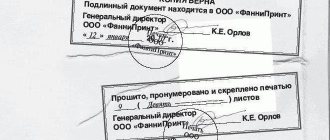Housing cooperative, or housing construction cooperative, is a voluntary association of citizens or legal entities on the basis of free membership to meet their needs for real estate, as well as to manage residential and non-residential premises in the house.
Members of the cooperative, using their own money, take part in the construction, reconstruction and further maintenance of residential premises through the contribution of shares. Dear readers! To solve your specific problem, call the hotline or visit the website. It's free.
8 (800) 350-31-84
What is housing cooperative
Housing cooperative is a voluntary association of home buyers created for a specific property (apartment residential building). Simply put, members of a cooperative agree to build a house, hire a developer and pay all costs. Each member of the cooperative, according to the agreement, is obliged to pay a certain share of expenses - a share, which is equal to the cost of the apartment.
In reality, everything happens, as a rule, differently. Most often, housing cooperatives are created on the initiative of the builder or developer. Since, by law, a developer cannot become a founder of a cooperative, he puts on a mask and creates a special legal entity.
Which is better for an apartment buyer: DDU or housing cooperative
It is impossible to unequivocally answer the question of which agreement the buyer should prefer (DDU or housing cooperative). Each real estate purchase situation must be considered individually. At the same time, a potential buyer should understand the advantages and disadvantages of different forms of interaction with developers.
Advantages and disadvantages of DDU
Purchasing an apartment under the DDU has its undeniable advantages, including:
- The developer must have his own permitting documentation and project declaration.
- The contract contains a fixed price for the apartment , which cannot be revised by the developer unilaterally. Developers must independently solve the problem of increasing the cost of building materials without involving shareholders.
- The house will be built exactly in the form in which it was laid out in the design documentation . It cannot unexpectedly and unplannedly increase by several floors; extensions and other buildings will not appear in it.
- The contract guarantees a transparent scheme for its termination and compensation for losses incurred.
- There are clear developer warranty periods for different types of work.
But although the legislation protects the rights of shareholders quite well, this agreement is not without certain shortcomings:
- The cost of apartments under DDU is usually higher than under housing cooperatives . And due to the mandatory deduction of part of the cost of apartments to a special compensation fund, apartments under DDU have become even more expensive. According to current legislation, builders must contribute 1-1.5% of the cost of apartments to the compensation fund.
- The share participation agreement involves a long stage of their registration.
- The agreement contains a limited list of grounds for termination.
Features of the housing cooperative agreement
The shareholder acts only through the board
The current legal entity of the housing cooperative is not the member of the cooperative, but the cooperative itself. He is also considered the customer for construction and the general investor. The contract is signed between the housing cooperative board and the developer. Interaction with the construction company is also carried out through the board. Therefore, an ordinary shareholder cannot make a claim directly to the developer.
The shareholder pays not for the apartment, but for the share
According to the housing cooperative agreement, the shareholder acquires not housing, but a share. Until completion of construction, ownership rights to real estate belong to the cooperative. The shareholder can register ownership of the apartment only after completion of construction work and full payment of the share. The share price may change if unforeseen expenses arise.
No registration in the State Register
The housing cooperative agreement is not subject to registration in the State Register, as it is considered an internal agreement between members of the cooperative. That is, there is no official confirmation of the relationship between the buyer and the housing cooperative. Registration occurs only after completion of construction.
The activities of the cooperative are regulated primarily by agreement and charter
The activities of the housing cooperative are based on the Housing and Civil Codes of the Russian Federation, the agreement and the charter of the cooperative. There is no special law. The widely known No. 214-FZ “On participation in shared construction of apartment buildings...” in the case of housing cooperatives only declares the possibility of such agreements. Therefore, the addition, amendment and termination of the housing cooperative agreement are regulated by the agreement itself and the charter of the cooperative.
In most cases, the Law “On Protection of Consumer Rights” does not apply
The housing cooperative agreement is concluded on a voluntary basis and implies that the members of the cooperative themselves organize the construction. Shareholders, roughly speaking, are both performers and consumers of services. Therefore, the Law “On the Protection of Consumer Rights” applies to housing cooperative agreements only if the agreement contains an indication of the cooperative’s responsibility to its shareholders.
We study the contract and charter
The main documents of the future shareholder are the agreement and the charter of the cooperative. Therefore, it is recommended to study both literally under a microscope. The form and content of the agreement and charter are not established by law. It is only noted that the provisions of the documents should not contradict the Housing and Civil Codes of the Russian Federation.
However, there are a number of provisions that must be present in the contract. These are the details of the parties, the object of the agreement, deadlines for delivery, the amount and procedure for payments, conditions for changing and terminating the agreement.
Details of the parties
The contract must contain:
- name and address of the cooperative;
- number and place of issue of the cooperative registration certificate;
- information about the chairman of the cooperative (full name, passport details, place of registration, TIN number).
Object of the agreement
The contract must contain:
- full name of the object under construction, description and address;
- detailed information about the developer;
- a detailed description of the purchase object (apartment) indicating the reference number, projected total and living area, layout, type of finishing, building and floor where the housing is located;
- algorithm of actions in case the designed housing area does not correspond to the real one.
Due dates
A specific date for delivery of the house must be indicated. The cooperative often stipulates that the completion date depends on the progress of construction. In such cases, it is recommended to either achieve a clear date or refuse to join this housing cooperative.
Payments: how much and when to pay?
The co-operative treasury consists of the following payments: entrance share, shares and membership fees. Share contributions are spent on construction, membership fees are spent on maintaining the cooperative. The agreement must determine the amount and order of all contributions.
In addition, the contract must stipulate:
- procedure for recalculating payments;
- additional charges. For example, the cost of paying government fees and processing documents.
Each payment must be documented. If the share is paid in full, the cooperative must provide a receipt for this. Based on this document, ownership rights are issued.
Conditions for changes and termination of the contract
These conditions are established by the contracting parties. As a rule, the contract is terminated early in the following cases:
- liquidation of housing cooperatives;
- exclusion of a shareholder from the cooperative;
- withdrawal of a shareholder from the cooperative.
The procedure for action in each case is prescribed in the charter of the housing cooperative.
An example of a cooperative agreement can be viewed here. This agreement is not a standard one. Therefore, it is best to consult with a lawyer.
What is a share agreement in a housing cooperative?
The procedure for concluding an agreement between a housing cooperative and a shareholder is regulated by the provisions of 215-FZ. The agreement between the shareholders and the housing cooperative defines such a key point in their relationship as the timing and procedure for transferring real estate from the cooperative to the shareholder, the amount of contributions and the timing of their payment.
A share agreement in a housing cooperative is an official legal confirmation of the shareholder’s right to a share in a house under construction. It is necessary to check the following aspects: who is the developer, when is the planned delivery of the property, and what are the conditions for making share contributions.
Also, before concluding a contract, you must carefully check the documentation of the HOA itself:
- land title certificate;
- terms of the housing cooperative's charter;
- a document confirming the inclusion of housing cooperatives in a special register;
- availability of design documentation for development;
- When does a building permit expire?.
How to end a relationship with an unscrupulous housing cooperative and return the money?
Housing cooperative agreements are drawn up by cooperatives independently and are poorly regulated by law. Often, if the developer is the initiator of the cooperative, the agreement is in favor of the construction company. All this leaves the developer a lot of room for maneuver: postponing the construction schedule for an indefinite period, a period, or even a deep freeze; collection of large fines for non-payment of contributions; unreasonably high additional fees.
There are two ways to terminate relations with housing cooperatives:
- leave the cooperative;
- unilaterally terminate the contract early.
Let's consider each case separately.
Leaving the cooperative
Like joining a cooperative, leaving is voluntary. To do this, you need to write a statement in which the shareholder notifies about the withdrawal and demands the return of the contribution made. The fact of sending and receiving the application must be documented. For example, send an application by registered mail with acknowledgment of receipt. Then wait the allotted time and, if there is no answer, file a lawsuit against the cooperative demanding the return of the money.
The procedure for leaving the cooperative and the terms for returning money are not established by law. You need to read the charter. And the charter may state, for example, that an application for exit will be considered within 6 months of the next year. And it's legal. Moreover, within 6 months, changes will be made to the charter (unfavorable to the shareholder). And this is also legal. Therefore, we repeat: the charter and agreement of the housing cooperative must be read most carefully.
Unilateral early termination of a housing cooperative agreement
The option is even more complicated. Having received an application for termination of the contract, the housing cooperative has the right to refuse or offer unfavorable terms for termination. Often this is a requirement to pay a fine of 10-15% of the contribution. In the end, you will still have to sue.
Preparation of an application for the recovery of a share contribution to the court
An application for the return of a share contribution is considered according to the norms of the Code of Civil Procedure of the Russian Federation and must be prepared in writing, containing:
- Name and details of the judicial authority.
- Name and details of the person applying to the court.
- Name and details of the defendant.
- The descriptive part of the application must contain information about the amount of the debt, the deadline for its payment, information about the pre-trial settlement of the dispute, the amount and detailed calculation of the penalty.
- The pleading part of the application is that I ask you to oblige me to make a refund.
- Appendix – agreement, charter, proof of making a share contribution, decision to withdraw, pre-trial claim and response to it (if any), calculation of the penalty, evidence of delivery or sending a copy of the claim to the parties involved in the case, receipt of payment of the state duty.
In case of violation of the provisions provided for by the rules of the Code of Civil Procedure of the Russian Federation when filing a statement of claim, it may be left without consideration, without movement, or its acceptance may be refused. Therefore, in order not to waste precious time and not to miss the statute of limitations for filing a pending application in court, we strongly recommend that you contact our qualified lawyers and attorneys.
USEFUL : for more information about ordering a claim in court, follow the link, as well as in the video
What will the housing cooperative return?
As a rule, the shareholder manages to return only the share contribution. The rest - membership, additional - cannot be reimbursed. Often the cooperative does not return the entrance fee, and it is not small - approximately 20% of the total cost of the property.
In some cases, a penalty may be requested. The law does not provide for the collection of penalties, but if it can be proven that an obligatory (non-contractual) relationship has arisen between the shareholder and the cooperative, then the Law “On the Protection of Consumer Rights” comes into force.
Q: What types of cooperatives are there?
A.K.: Housing cooperatives, housing-savings and housing-construction cooperatives are common. If we have anything in terms of attracting money from potential real estate buyers, it is mainly housing construction cooperatives. Potential buyers join its members, pay an entrance fee, current payments, and subsequently, upon completion of the construction of the facility and payment of the full share, they acquire ownership of the property - an apartment, which they initially intended to purchase by joining this organization. The scheme is approximately like this.
Advice for shareholders
We recommend that future shareholders document literally every step: from submitting an application to join the cooperative and ending with paying the last installment. Have you applied to join? Request a receipt that it has been accepted and properly processed. Was membership in the housing cooperative approved at the general meeting? Request a certified extract from the meeting's decision. The same applies to every payment.
The main risk of purchasing housing under a housing cooperative agreement is the low protection of the interests of the shareholder. The legislative framework is such that the ability to defend justice and get your money back in case of fraud actually depends on the legal knowledge of a member of the cooperative.
Therefore, it is strongly recommended to conclude and terminate housing cooperative agreements only under the supervision of experienced lawyers.
Q: How does the assignment of a share in a housing construction cooperative, for example, take place?
A.K.: The main document in a housing cooperative is the charter. The charter must indicate what relationships should exist between the shareholders who are registered in the cooperative. The imperative requirement is legitimately the following. To be accepted as a member of a housing construction cooperative, the approval of the conference of the general meeting of participants of the housing cooperative members is required. In other words, if I am a member of a cooperative and decided to cede to you my share, my share in this cooperative, you and I entered into some kind of civil law transaction related to the assignment of such a share, then we came to this cooperative, and there they say that cannot accept you as a member. They already have in connection with the seller’s withdrawal from membership, i.e. me, someone else who is already a member decided to purchase this apartment. There may be a huge number of different nuances associated with these concessions. As a result, you can pay money for a share and not be included in the members of the cooperative, sue them later, sue the person from whom you bought the share. A very murky story, in my opinion.
Court decisions
Failure to meet deadlines by the developer
The developer returned the money to the shareholder
Penalty from the developer Dalpiterstroy
How to sue a developer for a penalty
The apartment plan does not correspond to the contract
How to return money for an apartment if the contract was not concluded in accordance with No. 214-FZ
Customer Reviews
Gratitude from Elena and Alexander I sincerely thank lawyer Vasily Anatolyevich for his qualified and polite service. We will always contact you and tell our friends. Thank you.
Elena
Alexander 998-98-59
Gratitude from Volkotrub Yuri Vasilyevich Thank you very much for the quality advice on the issue that interests me. With best wishes to Denis Yuryevich Stepanov, who advised me.
Volkotrub Yuri Vasilievich
Gratitude to Vasily Anatolyevich Dear Lyubov Vladimirovna.
I would like to express my gratitude to Vasily Anatolyevich for his competent legal assistance in solving my difficult case. I wish you and your company further prosperity and success in your hard work.
From the bottom of my heart and with best wishes. 05/03/2018
Gratitude from Truk N.N. I would like to express my gratitude to Vasily Anatolyevich Kavalyauskus, Alexander Viktorovich Pavlyuchenko and Maxim Andreevich Lobur for providing qualified legal assistance, with the help of which my problem was resolved quickly and clearly. When contacted, I always found understanding and attention. It’s good that the “Society for the Protection of Consumer Rights” employs such lawyers and advocates. I wish you success in your future work and defending the interests of consumers.
Sincerely, Truk N.N.
07.05.2018
Review by Irina D. I thank the Legal Agency of St. Petersburg for the warm, sincere welcome and the detailed, competent, thorough, conscientious legal position of lawyer Andrei Valerievich.
Review by G.N. Antropova To the lawyer of the Legal Agency of St. Petersburg A.V. Ermakov
I express my gratitude to you for your professionalism in protecting my interests in a criminal case, Andrey Valerievich, allow me to express my gratitude to you for your help and support. I note your high professionalism and skillful actions in defending my positions.
Best regards, G.N. Antropov
Gratitude from Guryanova T.A. I express my sincere gratitude to Vasily Anatolyevich for his professionalism and highly qualified assistance in resolving the issue of protecting my rights as a consumer. As a result, I received decent compensation from.
Thanks a lot. 07/09/2019
Feedback from Goncharova I, Venera Konstantinovna Goncharova, express my gratitude to Andrey Valerievich Ermakov, Yana Maksimovna Matveeva, Daria Vasilievna Kutuzova and the entire team. I would like to note that the work was completed within the agreed time frame and with good quality. They showed a professional approach and excellent organization of work. I would like to express my gratitude to the entire team for their high-quality work and wish you further development of your company.
Sincerely, Goncharova Venera Konstantinovna.
Gratitude from Busygin A.I. I express my gratitude to Vasily Anatolyevich Kavalyauskas for the qualified management of my case, competent advice and justification for the decision, which led to compensation of the stated claims.
Sincerely, Busygin Alexander Ivanovich
26.12.2017
Review by Egorova A.N. I, Egorova Antonina Nikolaevna, am very pleased with the consultation of Yuri Vladimirovich Sukhovarov. Thank you for your attentiveness and understanding. I wish you further professional growth.
Rights and obligations of members of the Housing Committee, Housing Society, ZhNK
Lawyer Anatoly Antonov
A cooperative apartment has two legal regimes: until the cooperative member pays the share contribution in full, it is owned by the cooperative, and the cooperative member uses the residential premises on the basis of membership in it; after full payment, the residential premises becomes the property of the cooperative member - in this regard, the scope and content of rights member of the cooperative in relation to the residential premises he occupies changes from the moment the share contribution is paid, but in any case we are talking about a private housing stock.
Membership in a cooperative can arise upon its establishment or by joining an already established cooperative. Article 121 of the Housing Code of the Russian Federation establishes the following procedure for admission to membership of a cooperative: an application for admission submitted by those wishing to join the cooperative is considered within 1 month by the board of the cooperative and approved by the general meeting. A citizen or legal entity is recognized as a member of the cooperative from the moment of payment of the entrance fee after the decision on admission to membership of the cooperative is approved by the general meeting. Probably, only positive decisions of the board are approved by the general meeting; the ambiguity of the norm is obvious.
Residential premises are provided to a member of the cooperative by decision of the general meeting in accordance with the requirements specified in the application and the amount of the share contribution. Some authors point out that the term “provision” is unsuccessful; it is more appropriate to use “transfer”; it corresponds to the nature of the relations developing in the cooperative (Litovkin V.N.)
Traditionally, the rights and obligations of a member of a cooperative can be divided into property and personal non-property (management, right to information, etc.).
A member of a cooperative has the right to a share. According to Article 125 of the RF Housing Code, a share can belong to one or several persons, which is an innovation (previously, the legislator only spoke about the possible ownership of a share by a spouse or heirs).
The rights and obligations of a member of the cooperative in relation to the provided residential premises until full payment of share contributions are regulated by the Charter of the cooperative and the Housing Code of the Russian Federation. Among the main ones are the following:
1) the right to move family members into the living quarters. The concept of family members is not fixed by the legislator. Family members of a cooperative member have a derivative, dependent status from a cooperative member, and although their consent is required for a number of legally significant actions, they themselves do not acquire independent rights to residential premises, which is clearly manifested when a cooperative member leaves or is expelled. The procedure for moving in - a possible analogy with SN - Case on the claim of the housing cooperative against Levun V.M. about his lack of right to use the apartment // Bulletin of the USSR Supreme Council 89 No. 3. Determining their composition is important - an analogy but with what provisions??? (ownership or rental Art. 31 or Art. 69)
2) the right to move in temporary residents (Article 126 of the Housing Code of the Russian Federation) by mutual agreement with family members and with prior notification of the board. In this case, their status will be determined by the rules of Article 80 of the Housing Code of the Russian Federation, which regulates the procedure for the residence of temporary residents installed by the tenant under a social tenancy agreement.
3) the right to divide living space between persons entitled to a share (Article 127 of the RF Housing Code) if each person can be allocated an isolated living space. Disputes regarding division are resolved in court. The spouse does not have to dissolve the marriage.
4) the right to rent out residential premises with the consent of all family members and the board of the cooperative; this right belongs to both the members of the cooperative and the cooperative itself in the event of vacancy of residential premises in connection with withdrawal and exclusion from the number of members before accepting new ones (Article 128 of the Housing Code of the Russian Federation)
The rules of Article 76-79 of the RF Housing Code on sublease agreements apply to both cases. And if, in relation to members of the cooperative, the application of these rules does not raise objections, then when the cooperative itself acts as an employer, we are talking about a short-term rental agreement regulated by Chapter 35 of the Civil Code of the Russian Federation.
There is no right to exchange (previously it was enshrined in the Housing Code of the Russian Federation)
After full payment of the share contribution, a member of the cooperative becomes the owner of the residential premises (Article 129 of the Housing Code of the Russian Federation and only he - according to Article 218 of the Civil Code of the Russian Federation, other citizens who have the right to share savings also become owners), the moment of emergence of ownership rights is special, registration has only legal significance , it is subject to all, without exception, the rules of the Civil Code and the Housing Code of the Russian Federation on property rights. The owner may not be a member of his cooperative. Members of his family who have the right to a share also acquire ownership rights, the rest are endowed with the rights and responsibilities of a member of the owner’s family. The cooperative continues to exist, can be liquidated if the owners determine another way to manage the apartment building, or transform into a HOA.
Membership in the Housing Committee, Housing Cooperative Society is terminated on the grounds provided for in Article 130 of the Housing Code of the Russian Federation: - mandatory norms and an exhaustive list, the provisions of the Charter cannot contradict them








